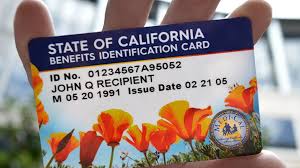Vidya Sethuraman
India Post News Service
Federal and state policy changes are bringing changes to Medi-Cal, which serves nearly 15 million Californians or more than one-third of the state. In this briefing, leaders and policy experts from the California Department of Health Care Services (DHCS) discussed state budget impacts and new federal requirements that will change Medi-Cal in 2026 through 2028.
Speakers clarified who is impacted, when changes will go into effect, and answer questions about which health benefits remain unchanged. These changes affect how millions of Californians access care, and clear information is vital to ensure families, especially immigrant and mixed-status households, understand their benefits and how they can stay covered. Medi-Cal is a lifeline for many families, and we want every eligible resident to have access to it with peace of mind.
Tyler Sadwith, State Medicaid Director, DHCS said that these adjustments are mostly due to new federal regulations and California budget changes, and will gradually affect some beneficiaries in the next two to three years. According to the new regulations, starting in January 2027, some Medi-Cal beneficiaries aged 19 to 64 will need to meet the “work requirement” of at least 80 hours of work, vocational training, volunteering or study per month, otherwise they may face the risk of losing medical coverage.
However, groups such as pregnant women, children, the elderly over 65 years old, people with disabilities, and those recently released from prison are exempted. Starting from 2027, some beneficiaries will need to resubmit documents every six months to confirm their qualifications, which will significantly increase the administrative burden. More controversially, starting in October 2028, some adults will have to pay a co-payment for specific medical services, such as specialist clinics or examinations, while emergency, primary care, pediatric and maternity care will remain free.
Yingjia Huang, Deputy Director for Health Care Benefits & Eligibility, DHCS added that due to the impact of state budget adjustments, starting from January 2026, new registration for full-scope Medi-Cal will be suspended for undocumented adults (non-pregnant women) over the age of 19 who are not eligible for federal Medicaid. At the same time, starting from July 2026, this group of people will no longer have access to Medi-Cal dental services, and will only receive partial coverage in emergencies such as acute pain, infection, or tooth extraction. Dental benefits for children and maternity groups remain unchanged.
Also Read: How Medi-Cal is Helping Older and Disabled Californians Thrive in Their Communities







